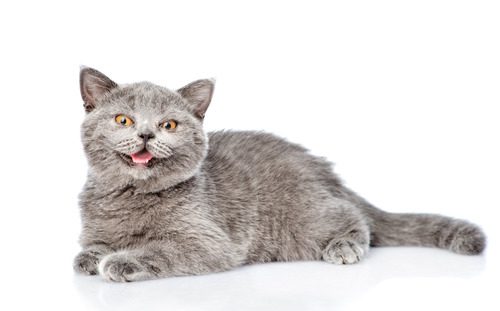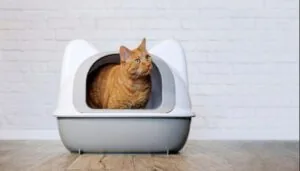Why Is My Cat Meowing So Much?
If your cat has suddenly become more vocal, or has always been a chatterbox, you’re probably wondering, “Why is my cat meowing so much?” Cats communicate in many ways, but when meowing becomes frequent or intense, it often signals something worth paying attention to. From behavioral reasons to medical concerns, excessive meowing can stem from a wide range of causes. Let’s explore the possible reasons behind this vocal behavior and what it might mean for your feline family member.

Understanding the Nature of Cat Meowing
Cats use meowing primarily to communicate with humans, not other cats. It’s their way of getting your attention, sharing a need, or expressing an emotion. The frequency, tone, and volume of your cat’s meow can provide important clues about what they’re trying to convey.
Cats Meow to Communicate With You
Unlike dogs, cats don’t meow at each other once they’ve matured. Meowing is largely reserved for communicating with people. Over time, cats learn which vocalizations get results, and they often tailor their meows to individual human responses. If your cat meows constantly, it may be because they’ve learned it’s an effective way to get food, playtime, or affection.
Meowing Varies by Breed and Personality
Certain breeds, like Siamese or Bengal cats, are naturally more vocal than others. These cats may meow simply because it’s part of their temperament. Similarly, some individual cats regardless of breed just enjoy a good “conversation.” If this behavior is consistent and your cat appears healthy, it could be perfectly normal.
Possible Behavioral Causes for Increased Meowing
Behavioral triggers are some of the most common reasons cats become more vocal. These may involve your cat’s environment, daily routine, or even changes in your household.
Hunger or Thirst
One of the simplest answers to “Why is my cat meowing so much?” is hunger. Cats often meow around feeding times to remind you they want their meal. A sudden increase in meowing near the food bowl or even after being fed could point to an adjustment that needs to be made in their feeding routine or food portions.
Boredom or Lack of Stimulation
Cats need mental and physical stimulation, and when they don’t get enough of it, they may meow out of frustration or boredom. Interactive toys, puzzle feeders, and window perches can help reduce this kind of vocalization by offering healthy distractions.
Attention-Seeking Behavior
Some cats meow simply because they want your attention. If your cat gets a response every time they vocalize, even if it’s just a glance, they’ll keep doing it. In these cases, it may help to redirect your cat’s focus to another activity, such as playtime or enrichment toys.
Medical Reasons Behind Excessive Meowing
When vocal behavior changes suddenly or becomes extreme, it could be a sign of an underlying health issue. It’s always a good idea to consult your veterinarian if you notice new or unusual vocalizations.
Pain or Discomfort
Cats don’t always show pain in obvious ways. Instead of limping or crying out, they might meow more often or in a distressed tone. Issues like arthritis, dental disease, or injury could cause discomfort that leads to excessive vocalization.
Cognitive Dysfunction in Senior Cats
Older cats may experience age-related cognitive changes, including confusion or disorientation. One of the signs of feline cognitive dysfunction is increased nighttime meowing. If your senior cat seems restless, forgetful, or starts meowing more after dark, this could be a contributing factor.
Vision or Hearing Loss
When a cat begins to lose their vision or hearing, they may vocalize more due to confusion or a need for reassurance. A veterinary exam can help determine if sensory changes are behind the behavior.
Hyperthyroidism and Other Conditions
Conditions like hyperthyroidism, kidney disease, or high blood pressure can increase vocalization in cats. These medical concerns often come with other signs such as weight loss, increased thirst, or changes in litter box habits. A thorough diagnostic evaluation is the best way to pinpoint or rule out these possibilities.
Is My Cat Meowing at Night a Cause for Concern?
Cats are naturally crepuscular, meaning they’re most active at dawn and dusk. However, excessive meowing at night can disrupt your household and may point to an issue that needs addressing.
Changes in Routine or Environment
Nighttime vocalization can be triggered by something as simple as a shift in schedule or sleeping arrangements. Cats thrive on routine, and disruptions may lead to anxiety-driven meowing.
Loneliness or Separation Anxiety
If your cat sleeps in a separate room or spends more time alone at night, they may be calling out for company. Offering a cozy sleeping space near you or providing background noise like a white noise machine can help reduce nighttime vocalization.
Senior Cat Concerns
As mentioned earlier, older cats may meow more at night due to cognitive dysfunction. These cats may seem lost, confused, or distressed. Discussing these changes with your vet can help you determine whether additional care is needed.
How to Respond When Your Cat Won’t Stop Meowing
Managing vocal behavior starts with identifying the cause. Here are a few ways to respond depending on what’s driving the behavior.
- Provide Structure and Routine: Cats find comfort in predictability. Feed meals at the same time each day, maintain consistent playtime, and avoid abrupt changes to their environment. Creating a stable routine can reduce anxiety-related meowing.
- Avoid Reinforcing Negative Behavior: If your cat meows excessively and you reward it with food or attention, you may unintentionally reinforce the behavior. Instead, wait for a quiet moment to engage or provide treats, so your cat begins to associate silence with rewards.
- Enrich Their Environment: Adding vertical spaces, puzzle feeders, or rotating interactive toys can give your cat more to focus on throughout the day. Environmental enrichment helps reduce boredom-driven vocalization and provides healthy outlets for energy.
When to Reach Out for Veterinary Support
If you’re asking, “Why is my cat meowing so much?” and nothing in their environment has changed or their meowing is paired with other unusual behaviors, it’s time to involve your veterinarian. Even subtle shifts in behavior can signal health concerns that benefit from prompt evaluation. Shallowford Animal Hospital in Lewisville, NC, offers caring and thorough diagnostic support to help uncover the reasons behind your cat’s vocalizations. Our team is ready to evaluate your pet’s overall health and provide tailored recommendations based on their unique needs.
A Happier, Quieter Home Starts With the Right Support
Your cat’s meowing is more than just background noise. It’s their way of communicating with you. Whether it’s a call for attention, a sign of boredom, or something more serious, staying in tune with your cat’s vocal patterns can help you respond appropriately. If you’ve been wondering, “Why is my cat meowing so much?”, the best next step is to rule out medical concerns and explore possible behavioral triggers. For compassionate care and experienced insight into your cat’s health, reach out to the team at Shallowford Animal Hospital. We’re here to help your pet feel comfortable, safe, and understood. Call (336) 945-4412 to speak with our team or schedule an appointment online.
Share This Post
Recent Posts
About Shallowford Animal Hospital
Shallowford Animal Hospital and The Pet Spa at Shallowford are dedicated to the exceptional, compassionate care your pet deserves. Pets hold a very special place in our families, and we treat yours like our own.



